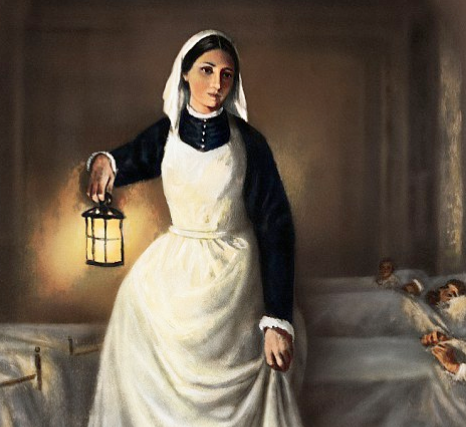Florence Nightingale and International Nurses Day

For the first time, International Nurses Day will be celebrated exclusively online through social media and web platforms, due to the Coronavirus pandemic. May 12, 2020 will mark not just the annual celebration of the efforts of nurses from all around the world, but also the 200-year anniversary of the birth of Florence Nightingale; the influential woman dubbed the ‘mother of modern nursing’ and ‘the lady with the lamp.’ The celebrations will hold a substantially greater significance this year, not just because of such an important anniversary, but also due to the extraordinary endeavours of nurses in every country affected by the virus across the globe, without whom many nations would have been completely overwhelmed as a result of the crisis.
Two aspects of modern healthcare that have been particularly crucial during the Covid-19 pandemic were both introduced by Nightingale herself – the use of data and statistics to attempt to control the spread of infection, and an improvement in sanitary methods, such as washing hands. She is most famous for her work during the Crimean War from 1854 to 1856, where she served as the ‘Superintendent of the Female Nursing Establishment of the English General Hospitals in Turkey.’ It was here that she was able to put her considerable mathematical skills to good use in order to analyse the reasons for such a high mortality rate in hospitals during the war, and also where she earned the nickname for wandering around at night with a lamp, tending to patients.
Nightingale suspected very quickly that the high mortality rate of 60% in the hospitals was not due to battle wounds, but to poor hygiene methods. Diseases such as typhus and cholera were widespread in the hospitals upon her arrival, so she started collecting data to calculate the mortality rate of hospital patients. Upon discovering that there were significant differences in death rates between hospitals, she realised that many deaths must have been caused by local factors in the hospital. By introducing sanitary improvements in one hospital and observing a huge fall in the death rate, she was also able to ascertain that the local factor was hospital hygiene. Thus, her findings contributed to a drop in the mortality rate to 42% by February 1855, and then to 2% a few months later.
This statistical analysis of death rates is just as pertinent today with the Coronavirus crisis as it was in the 19th century, as many countries have recorded considerable differences in death rates. Nightingale was both born in and named after the city of Florence, and so there will be added emphasis to the celebration of International Nurses Day. Italy’s National Federation of Professional Nursing Orders (Fnopi) will be using its website and social media channels to publish a live broadcast with special content dedicated to nurses and citizens, including testimonies and stories from those who have been selflessly working on the front line in the fight against Covid-19.
There will also be a relaunch of the fundraising campaign #NoiConGliInfermieri, which serves to give donations to healthcare workers affected by the virus, while the musician Paolo Fresu will give an online performance of a new song entitled ‘Perfetta’ in honour of today’s nurses and Florence Nightingale. Nightingale’s memorial statue commissioned by the English community in Florence in cloister of Santa Croce will also be restored. (alfie king)
